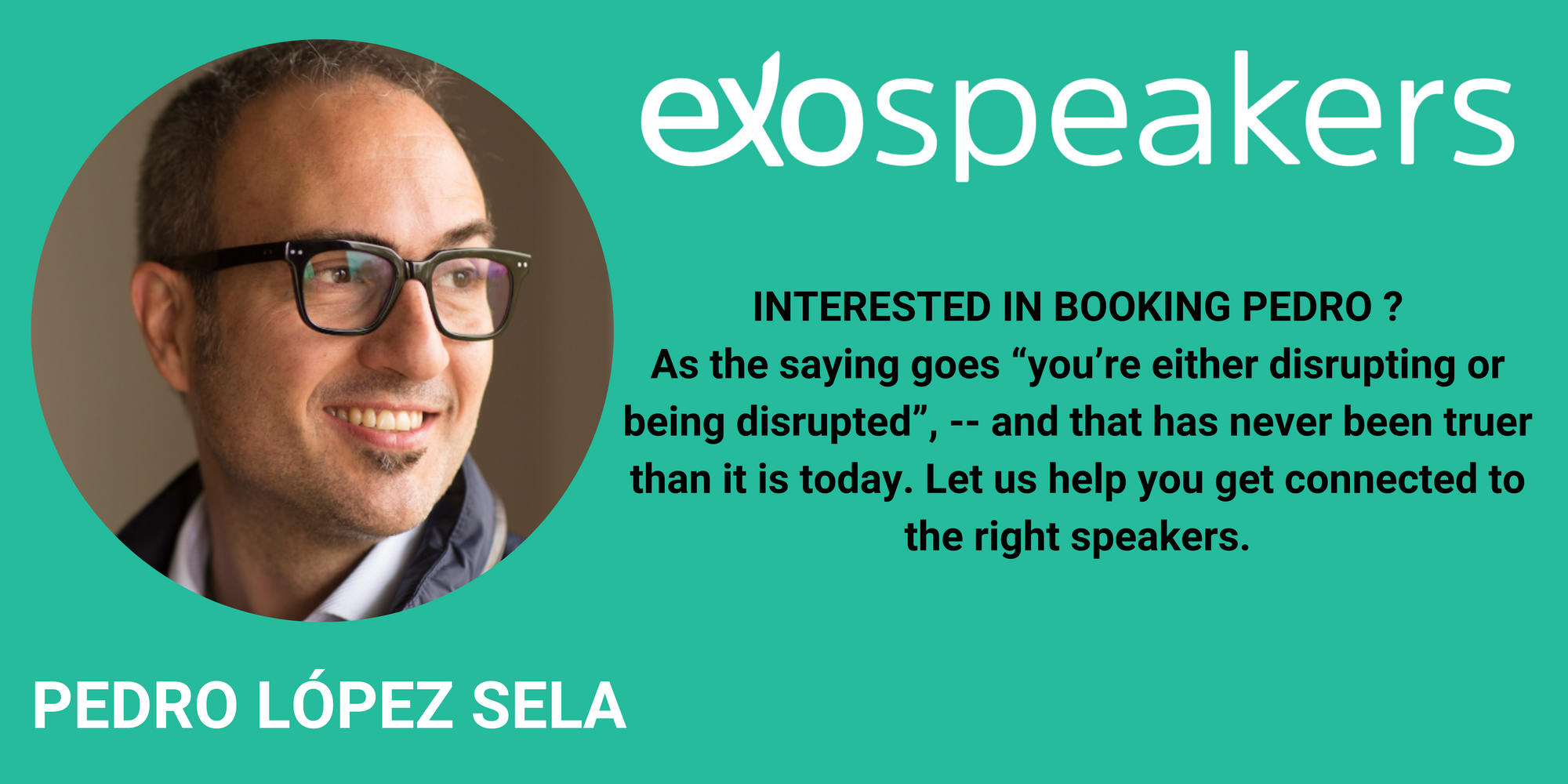
Startup: A Decision Based on Growth
While the startup seeks to disrupt the market with a scalable and impactful business plan, the small business owner wants to be their boss and secure a place in the local market.
One issue that creates confusion among those who want to venture into starting their own business is the definition based on the project's size, development, and growth. In addition, talking to friends and acquaintances about the idea leads to debate since some will talk about a small or medium-sized enterprise (SME), and others will think of a startup.
At this point, the entrepreneur must have a clear idea of what he wants to find since an SME is not the same as a startup, and, of course, the answer will depend on how far he wants to go with his idea.
What are the main differences between an SME and a startup? Although on paper and for the public administration, they are the same, some differences are defined by the fact that both follow different paths to reach a final goal.
Generally, the goal of small companies is to generate profits and long-term value, which usually translates into a profitable company that can grow into a medium or large company or remains in a stable position. However, startups are not as interested in generating profits as they are in demonstrating their capacity for potential growth to attract the attention of investors, venture capital funds, and ultimately large companies that may buy them in part or whole.
Likewise, while small companies are primarily concerned with their financial survival and pure and simple profit, startups are usually concerned with developing what they consider to be a great product, capable of reaching wide audiences, even at the cost of not being able to monetize it.
How Are They Defined?
For a long time, investors viewed startups as a small version of a large company, when there is a big difference in reality. While there are no strict guidelines that determine what a startup is, the general definition is that it is any company that is in the early stages of operations but expects significant growth shortly; a small business is any type of business that only has a certain number of employees, the maximum of which differs by industry.
Although these types of businesses may appear to be the same, there are both ideological and organizational differences, starting with the fact that each requires a different financing strategy and key performance indicators (KPIs). Understanding the differences between the two will be critical to your future success as an entrepreneur.
According to Steve Blank, a serial entrepreneur, Silicon Valley legend, and professor, a startup is a "temporary organization designed to pursue a repeatable and scalable business model." A startup, especially in the context of technology industries, should be shorthand for "Scalable Startup," which seeks to not only test the venture but to do so quickly to achieve high growth potential and impact in the current market. The creator of a startup is not only looking to be his boss but to take over the universe, i.e., from day one he is looking for his business to become a large disruptive company.
A small or medium-sized business is defined by the U.S. Small Business Administration (SBA) as an organization that is "independently owned and operated, organized for profit, and not dominant in its field."
While the startup seeks to disrupt the market with a scalable and impactful business plan, the small business owner wants to be their boss and secure a place in the local market. Eventually, a startup may cease to exist as an independent entity through a merger or acquisition, as a satisfier to the need to scale growth and capital. Meanwhile, for the small business owner to relinquish control would defeat the purpose of managing his own business, which for the startup may be necessary.
Although both are entrepreneurial, the business's goals, primary function, and funding are radically different and require different strategies. Both models (the startup and the small business) are built with funds from savings or bank or family loans. Still, if the startup is successful, it will be easier to obtain additional funds and, with each, the ownership of the business is diversified.
Given the above, Blank proposes three main functions of a startup creator:
- Generate the vision of a viable business idea or product with a set of characteristics in a startup phase.
- Then, formulate a series of hypotheses about all the parts of the business model: Who will be the customers, what will be the distribution channels, how will the company be financed, and so on.
- Immediately validate whether the business plan is correct by checking whether customers behave as your model predicts.
Financing and Growth
The differences between startups and small companies are relevant in terms of two main factors: how they are financed and growth expectations.
Both have notable differences on the financing side. A small company can be financed in different ways, but in most cases, the amounts are not large and generally do not exceed two thousand dollars from the same source. For example, nearly 33% of small businesses start with less than $5,000 in financing.
Despite the low funding, many small businesses have succeeded because they focus on profitability from day one. Since they make profits almost immediately, they do not require further financing. The primary sources of funding for this type of business usually come from the entrepreneur's savings, bank loans, or loans from family and friends.
Startups, on the other hand, are financed in a very different way as they require larger amounts since their purpose is to create a product or service that is viable in the market, and this implies capital for the development of the product. In many cases, startups can be funded through angel investors or venture capital firms willing to invest in a company they believe will succeed and ultimately are likely to get a share of the company - usually equivalent to 5 - 10 percent - in exchange for their money. We are talking about the average angel financing can range from $10,000 to $100,000.
On the other hand, when the startup grows and sees the possibility of expanding its market, the entrepreneur can turn to a venture capital firm to invest in the business. This type of company can participate in Series A, B, and C financing rounds with capital ranging from one million to one hundred million dollars, depending on the level of scale the startup achieves.
While this financing is attractive to many young companies, it is important to understand that venture capital firms typically want a high return on investment of at least 20%. The best time to engage a venture capital firm is when you are poised for substantial growth.
But one of the most notable differences between a startup and a small business relates to the type of growth and revenue objectives they have. Small businesses are primarily driven by profitability and consistent long-term value. When starting operations, a small business seeks to be profitable immediately and will try to grow over the years; this growth should be stable and steady, which means that the business will always remain small. Growth occurs only when necessary and is driven primarily by the need to remain profitable.
Up to what size can you still be considered a small business? It all varies depending on the industry you are working in. For example, in the United States, a small business in the agricultural sector must earn less than $750,000 in annual revenue and wholesale trade. The maximum number of employees allowed is between 100 and 250 and in the real estate, leasing, or rental sector, any small business must generate a maximum of between $7.5 and $37.5 million in annual revenue.
Up to what size can you still be considered a small business? It all varies depending on the industry you are working in. For example, in the United States, a small business in the agricultural sector must earn less than $750,000 in annual revenue and wholesale trade. The maximum number of employees allowed is between 100 and 250. In the real estate, leasing, or rental sector, any small business must generate a maximum of between $7.5 and $37.5 million in annual revenue.
Startups are different in terms of growth and revenue; they are a temporary business model for which there are no restrictions or limitations on growth. They are not looking for a slice of a large market, they are looking to get as much market share as they can with the product or service they offer.
Startups are generally not profitable in the early stages of business development, as their focus is to grow in the shortest possible time through a product or service that can be successfully placed in the market, which could bring millions of dollars of profit in the long term. Among the most successful startups is Uber, which now has a market value of $50 billion.
What about Tech Startups?
Startups make up a very small part of the SME population, but technology-based startups are all the rage. They are young, entrepreneurial companies that bring new, innovative, technology-based products and services to market and offer solutions to problems we often didn't know existed. They are the companies of the digital age and forerunners of some of the largest national and global firms. Google, Amazon, Alibaba, and Gojek are famous examples. According to one estimate, in 2020, about 213 million SMEs were operating worldwide, of which 1.35 million (less than 1%) are technology startups.
Since startups’ business model is generally scalable, they expand rapidly because their solutions are delivered through technology and therefore reach a large customer base, create opportunities for innovation, and recruit people with valuable skills, with expertise in science, technology, engineering, and mathematics (STEM). Their limitations center on supply, stiff competition for talent with large companies, and the high cost of living in tech hubs.
These types of entrepreneurs think big and are determined to see their ideas grow and, because of their business model, require a different set of policies and support programs from the government and the startup ecosystem in general. They focus on prototyping and development, and many - even the successful ones - operate at a loss for many years. In terms of Joseph Schumpeter, an expert on innovation and its impact on economic cycles, startups are creatively disruptive; they shake up the business world through innovative services and new business models.
However, the technological talent of startups needs the support of incubators and accelerators to develop their business. A startup begins with an innovative idea from the founders who, although creative with technology, sometimes lack experience in running a business. This is when incubators and accelerators come into the picture, offering advice, training, networking, and mentoring, as well as helping to experiment and, where appropriate, rapidly iterate to new versions that are better adapted to the market.
This type of startup has given rise to several new sectors such as fintech, e-commerce, Agritech, Greentech, and others. In addition in the wake of the Covid-19 pandemic, they drove technology through platforms such as Edutech (online learning) and solutions that support business communications (remote meetings and conferences).
What do you want: A Startup or an SME?
It is a good time to ask yourself if you are starting a business: Am I creating a startup or a small company?
In reality, every business starts as a startup, literally the beginning of something. Recall that Amazon effectively began as a startup and is now among the largest companies in the world. If you are still unclear about the type of business you are creating, it is best to think of a startup as the initial stage of a business.
To guide your decision, if it is inclined towards a startup, it is advisable to take into account the following aspects: Innovation is the most important thing for a startup since they are intended to create something new and/or improve what already exists, as happened with the creation of 3D printers; you must be clear that the startup does not set limits to its growth, it seeks to gain the largest market share and strives to become a leader in the corresponding sector; growth must be a constant as well as doing it in the shortest possible time.
Likewise, the business must be able to reproduce its success worldwide, you must be aware that it could take months or years to obtain the first profits; when you reach the development phase, you will require additional capital before you can make a profit, but when you manage to make an impact on the market your profits will be in the millions. In addition, investors expect an additional financial return, which creates additional pressure on the business.
Another factor to consider is that, while an SME does not require special technologies and what exists in the market is enough, a startup cannot fail to use new technologies to achieve rapid growth and scaling. Technologies are often the main product of startups.
On the other hand, you must be clear that you will have to develop leadership and management skills from the very beginning because, as your business develops, you will have to work with more staff. In addition, you will have to negotiate with investors and other stakeholders in the industry. This will also mean that you will increasingly have to juggle your work with your private and family life.
Finally, while a small business might end up as a family business or be sold to a third party, the startup will ideally need to move to the next stage through a large and substantial sale transaction or an Initial Public Offering (IPO) on the stock exchange.
If your goal is to become a leader in a particular industry, a startup is perfect for you. Keep in mind that startups start by focusing on product development, large amounts of growth, and innovation. The amount of customer research you conduct is almost as important as the product development your startup does; for a startup to succeed, you must know the customer and understand how to grow the company into larger markets. You need to be prepared for the challenges and stress you will experience in the early years of your startup.
On the other hand, small businesses focus on less revenue and profitability, a small market area, and a smaller number of employees. When creating a small business, it is important to understand that growth will be slow and limited. You will never experience rapid growth and should not want to do so with the type of business you create. However, if you want to set your hours and work in an industry that interests you, starting a small business is a great way to achieve these goals.
In any case, it is very important to understand the differences between startups and small businesses and realize what suits you best of all. This skill will allow you to correlate your possibilities and expectations to choose the best plan to achieve your desired goals.
In Summary
Whether you are in the process of creating a startup or a small business, you must know the difference between these two types of businesses. In addition, since the growth prospects are significantly different, you must determine how much you want your business to grow before the company is fully up and running.
Before deciding whether to go ahead with creating a startup or a small business, you must be fully aware of the risks involved in both approaches. Nearly 33% of small businesses will fail and have to close within the first three years of operation.
If this figure seems high to you, more than 90% of startups will close in that same period, which means that this business model involves much higher risk. If your product or service idea does not turn out as you had imagined when you created the startup, you will have to adapt quickly or risk having to close it.
Since small companies do not have as much funding as startups, the venture is less risky. However, the return on investment of a startup can be astronomically higher than that of a small business. Both options are fantastic. Each method can provide tangible benefits if you want to create a successful business. However, you must be sure that your decision is the right one. If you have a great idea that you believe can be a highly successful product or service, a small business is probably not enough to contain that idea.
Before making your final decision, you should also be aware of the exit strategies for these businesses. For example, in the case of a small company, you can sell it or turn it into a family business. On the other hand, startups that have proven successful are usually acquired by a larger company or converted into an IPO, an initial public offering that allows the issuance of shares.
Innovation is the name of the game for startups. If you want your startup to succeed, you'll need to create something new or improve on something that already exists. So what do you have in mind?

ExO Insight Newsletter
Join the newsletter to receive the latest updates in your inbox.









